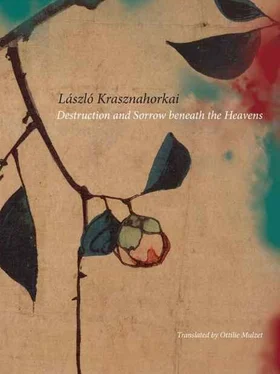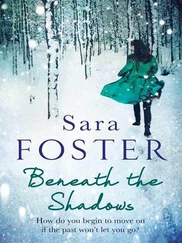China went through many difficulties in its past, but now everything is much better, so that we have to see it like this: China was asleep but has now woken up. In our brains, there is one part in the depths which has not changed, that’s the part we think with, that’s why we’re independent. Just as a person never forgets his parents, the Chinese never forget their classical past. China has gone down many wrong paths: there were many contradictions and misunderstandings between some people and other people, between people and the Party. Anyone who thinks otherwise and who says that today — when we have finally awoken and are returning to our past — anyone who denies this, saying that it’s just some chaotic modern culture that we have now, well, that person is lying, is somehow sick, spiritually. . something like that. And there is nothing to fear in business. The market is the decisive factor. The demand. Yes, the past is really important to me, but in the end? The end is business. That’s the bottom line. That’s where a person can measure up what he’s done. So there is no problem here. Later I’ll give you some clothes ( laughs ), come to Muzhenliao, we’ll talk about it, it’s here on the Wangfujing, you can pick something out and then you’ll see. OK? Just don’t be afraid of business. ( Her cell phone rings and she answers it ) Wei[170]. . ah. . just a bit longer, yes, a bit. . about 10 minutes or so, and fine, you wait. . Are you going home? Wait a bit, and then I too will. . Because I’m still talking. . One of Mr Yang Lian’s friends is here. . he’s also a foreigner. . what?!. . Me? Fine. We’ll talk about it later. Aha. OK.
Miss Wang stands up, and, as she extends her hand in farewell, Stein is prepared for the grip of a strong handshake, but it isn’t that at all: it’s gentle, her hand hardly touches Stein’s. During her monologue she looked at her watch maybe 10 times, and she laughed twice. Now she is saying goodbye to Xi Chuan, she is smiling, and in this smile you can see how truly exquisite she is, then the two men escort her to the door, they watch, as she gets into a SUV worth many millions and the chauffeur zooms away with her into the Beijing night. Xi Chuan and Stein return, silent, to their table, neither man speaks a word, they both keep looking towards where she has zoomed away to, as if gazing after the exit of a stern spirit — until at last they slowly come back to life, and, no longer speaking of ‘serious matters’, they eat and drink, their manners are loosened, more dishes arrive, the face of Xi Chuan becomes smooth, at times he leans back, clasps his hands over his pot belly, and laughs, liberated.
When he gets home at about midnight, he finds that Mama is still awake. At first he silently inserts the key into the lock and opens the door so as not to wake her, but then he sees that the light is still on in her room; he softly goes to her door, and calls into the room, Mama, are you still awake? — Of course, she yells out gaily, and says something to the effect that there’s nothing to worry about, for if he, Stein, is coming back to the flat, she would never go to sleep.
Stein really loves Mama.
She is so tiny, so frail, so soft-spoken, that it seems a miracle that she has endured until now, and unbelievable that she, working her entire life as a doctor, has been able to withstand these 60-odd years. And she would be working now, were she not confined to her bed due to illness. For weeks she has not been able to get out into the fresh air; she can’t even leave her room, she is enclosed there. Whenever he can, Stein sits next to her and listens. Mama has an upright piano, which Stein used to play for her sometimes; she was always so deeply affected, though, that Stein stopped doing so. Instead he would tell her about his day, then get her to talk about her life. Just like now.
Mama, there’s one thing I never asked you: What was life like when you were a small child? What was everyday life like back then?
mama. As you know, I was born in 1934, but of course I don’t have any memories directly from that period. The first things I can remember are from the time of the Japanese occupation. The Japanese. . ( she tries to recall the word in English, the language in which they are speaking ). . war. The whole thing was more of a decisive impression for me, rather than a memory. I might have been three years old. . I heard the sound of a huge explosion. It was horrifyingly powerful. We lived in alley, and in my room I was really afraid. I hid underneath the bed ( laughs ). Otherwise. . I recall nothing from that time.
And thus, so to speak, my life began. With that huge explosion. Later on, when I was a little older, I already knew about some things, I knew that the Japanese had occupied Beijing, and my feelings were. . they were such that I felt that in my life there was nothing happy. . nothing cheerful. . nothing, not a single happy thing. When the Japanese occupied our country, life was not secure. The mere fact of remaining alive was not secure. Nor was my father’s work. Because my father was 48 years older than me. He worked at the Shifan University,[171] and he was already considered old. So we were afraid he would be dismissed. And prices were really high! At that time the Japanese just left us one single thing to eat — xiliang, millet grains. We could hardly get any rice. For the most part it was cornmeal or barley. Unfortunately, even the grains that we got from the Japanese were ruined, they had a bad taste and a greenish colour. The Japanese gave us whatever could no longer be eaten. So the only thing we could do was to keep hens at home. They laid a fair amount of eggs. I really liked that. We hardly bought anything, we had no money. So we ate mainly eggs. We didn’t eat the grain, but gave it to the hens. That’s how it was.
At that time, life at home was not too good. In a material sense. Because my father was the only one who earned any money. There were four of us siblings. My mother stayed at home with us. She took care of the household. My father always worked, my mother was at home, and their life was quite bitter. They were crushed by poverty in every respect. We were never allowed outside, except to go to school. And there was no place anywhere where we could have played.
What about friends? Was it possible to play with them somehow?
mama. We had no friends! I’m telling you that they only let us out to go to school, and there we only had lessons — of course there were no games in school, so where could there have been any friends? Later on, even when we were older, we couldn’t go to the movies. Because the Japanese soldiers went to the movies for their fun. Not that we could have spent the household money on something like that. We never went to the movies at all. As soon as school was over, they let us out to go home immediately. We couldn’t even stay in the courtyard because there were Japanese living next door. And, usually, the Japanese children bullied the Chinese children. They were always out there in the courtyard, and they could play. Not us. If we went out when they were there, they beat us. So we couldn’t go into the courtyard unless an adult was with us. Either my mama, or the house supervisor. We were even accompanied on the way to school, I remember that. It is easy to beat a child. Because of that, there was always an adult going with us to school. Once we were inside school, there were no problems.
What were the lessons like?
mama. It was just an average school. I have to think a bit. . ( laughs ). . Oh yes. . There was a huge entrance with a horizontal inscription above it. . I don’t remember anything specifically. What was written there. . Maybe it was something like ‘Li Yi Lian Chi’,[172] a quote from Confucius, it was a quote from him, that is certain. . Then there was the classroom. Well, that was pretty basic. Little tables, little chairs, a blackboard on the wall, the teacher wrote on it in chalk. At the beginning of the lesson, when the teacher came in, the class steward yelled: Stand up! Then: Sit down! During the lessons, we sat with our hands behind our backs.
Читать дальше












